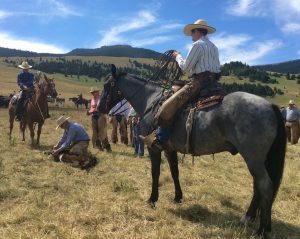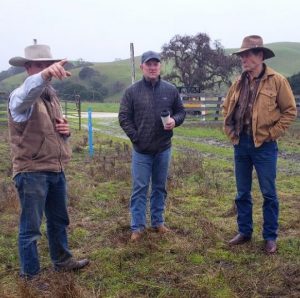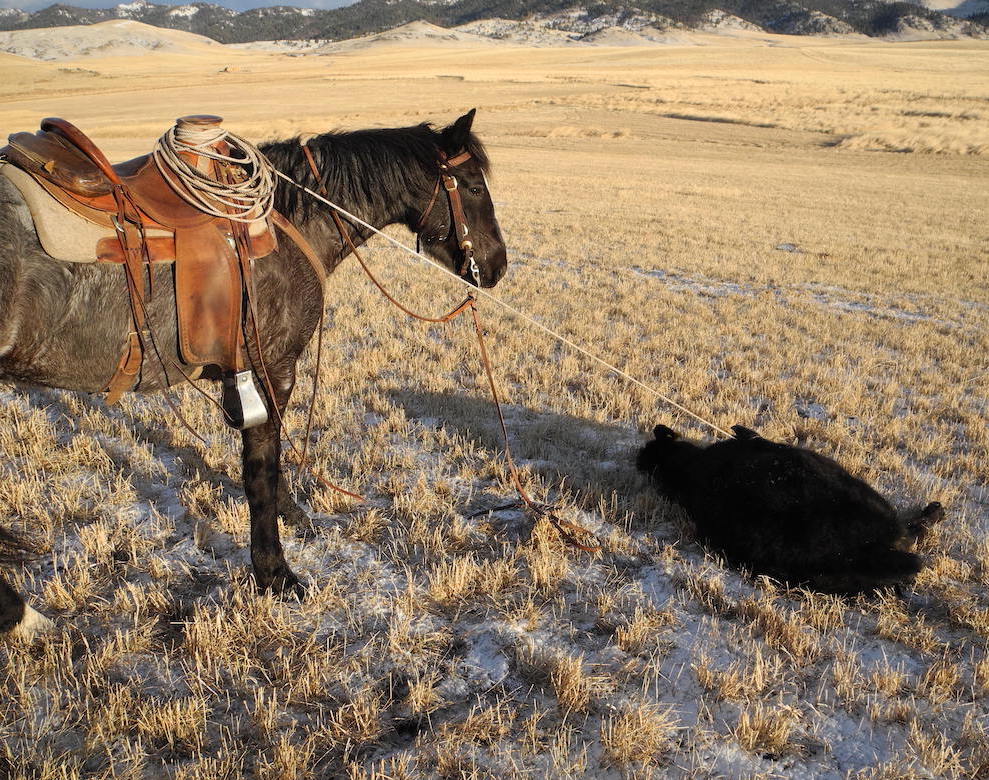
Whit Hibbard and his horse, Teddy, work at a branding
From producer Maddy Butcher:
Today, Jec loans the mic to me for an interview with Whit Hibbard, a fourth generation Montana rancher and low stress stockmanship professional. I met Whit several years ago when he was passing through Colorado, giving presentations on low-stress stockmanship and livestock handling.
Check out the Stockmanship School offering at the Cottonwood Guest Ranch in Wells, Nevada on September 23-26. View and/or download the pdf here.
There’s a strong parallel I see with the shift in handling cows and the shift of handling horses as we move away from physical and domineering ways to the mental, partnership type of work that was once called “natural horsemanship”. The work in similar even if demographics are quite contrasting in different circles. Horsemanship clinics are populated mostly by women and stockmanship clinics mostly by men. Which is the tougher audience, I wonder?
Whit is doing impressive work with National Parks and big private ranches like those owned by Ted Turner. Turner Enterprises consists of 18 ranches and two million acres. Most recently, he has focused on bison and has helped livestock handlers design structures that incorporate low stress handling into their overall system.
Whit brings scientific findings and evidence-based best practices to the fore, along with critical thinking and an eye on detail. It’s welcome work.

Whit (right) visits with Joe Morris and friend.
Even if you don’t work cows or have an interest in working cows, there are helpful, insightful reflections here around how we operation. By the way, Whit also publishes the Stockmanship Journal and if you’d like a link to a free download, simply contact us.
If you have a podcast topic suggestion, let us know!
We would like to thank Lucerne Farms, Pharm Aloe, Redmond Equine, Kate’s Real Food and Patagonia WorkWear for their continuing support. Please follow these brands and buy their stuff as they support us and what we’re doing.
This month, we’re giving away a Patagonia WorkWear item to two lucky listeners. Check it out at besthorsepractices.com/podcast.

Teddy holds a calf to be doctored
One of the questions I asked Whit at his seminar here was about predation of unattended grazing lease cattle. His answer was interesting. The way cattle are handled NOT using low stress stockmanship, the cattle learn that every time they are bunched up, something bad happens. They learn to be more comfortable dispersing. Wild ungulates learn to bunch up for protection, often encircling their young. Cows handled without sensitivity are adverse to that, which makes them much more vulnerable to predation. An additional benefit to cattle that are not adverse to staying closer together is how their grazing impacts land. They graze and move as a bunch. Too much to go into here.
Thanks for this, Kerry. There is a great video trailer around this idea on the NickerNews.net/links page.